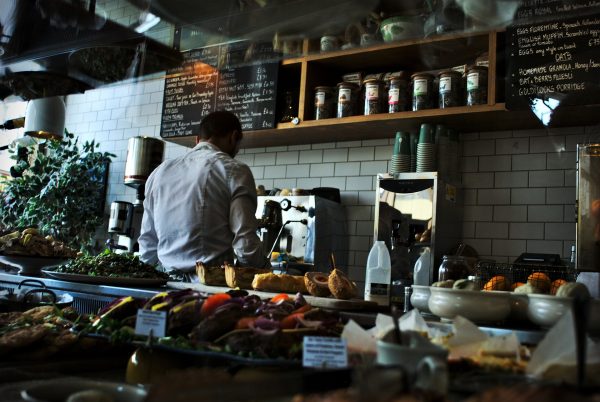

When devising a local social media strategy, the benefits of customizing the approach specifically for a business and its customers is invaluable. Sure, there are general guidelines that apply to almost every industry, but the blog I wrote about Social Media for Service Based Companies is not the same advice I would give for brick & mortar establishments. If you’re a small business owner with a set location—here is the best way to market your business on social media.
One of the main differences between local social media for service based companies and brick and mortar establishments is the end goal. For service based companies, we are constantly driving traffic to the company website, specifically the contact page. There is stress put on educating the public about the need for the service in question and demonstrating that the company is an expert in its field. For brick & mortar establishments, the goal is to drive traffic to the location! Convincing people to stop by a restaurant or clothing store means appealing to a want that can be fulfilled immediately. Hungry? Stop here for lunch. Need a new outfit? We’ll outfit you! The recommended platforms don’t change, but the way they are used most certainly does.
Facebook is an opportunity to interact and showcase a businesses’ involvement in the community. It is also a way to highlight the brands a store carries or if applicable, the local farms a restaurant sources ingredients from. Facebook also allows event pages to be created in order to generate buzz for any upcoming special events or merchandise sales. Facebook should be updated consistently and with a variety of information that is relevant to the customer base.
Twitter has proven to be an excellent way to manage customer service. A brand’s Twitter feed can include much of the same information that is on its Facebook newsfeed, but posted multiple times a day. Interact with audiences that you are hoping to attract by retweeting or mentioning them in your own tweets. Make sure to reply to any comments, complaints or suggestions in a professional and friendly manner. Keep in mind that there are brands that have built a following by the way that they respond to customer comments on social media, whether it is diligently (JetBlue) or with humor (Skyscanner Jen).
We love Instagram for brick & mortar establishments. This is an opportunity for restaurants to flaunt appetizing photos to the foodie community and for clothing stores to capture the attention of fashion influencers. With this platform, it pays to research popular hashtags and to have an ongoing rapport with repeat customers and ignite discussion with active Instagram users. We suggest that the filter used for images stays consistent and that the wording of the captions matches the messaging on all other platforms. This is a good time to define whether your brand is for or against the use of emojis!
One of the most impactful and easiest steps for local social media you can take is to double check that all of the pertinent information about your store (address and phone number) is easily found across all social platforms. For restaurants, this means linking to your menu and providing numerous photos. For product-based stores, it’s important that sales are publicized and that store hours are made apparent. At Alter Endeavors, we make a point to occasionally view our social media profiles as visitors, where we check links and think like a potential customer.
We live in a day and age where the question, “How did you hear about us?” is as commonly answered via “Facebook” as “ word of mouth.” Just today, I visited a coffee shop after seeing pictures of their decor and Nutella waffle on my explore page on Instagram! You don’t need photographer quality photos or fresh daily content, just start by making sure your ‘About’ section is complete!